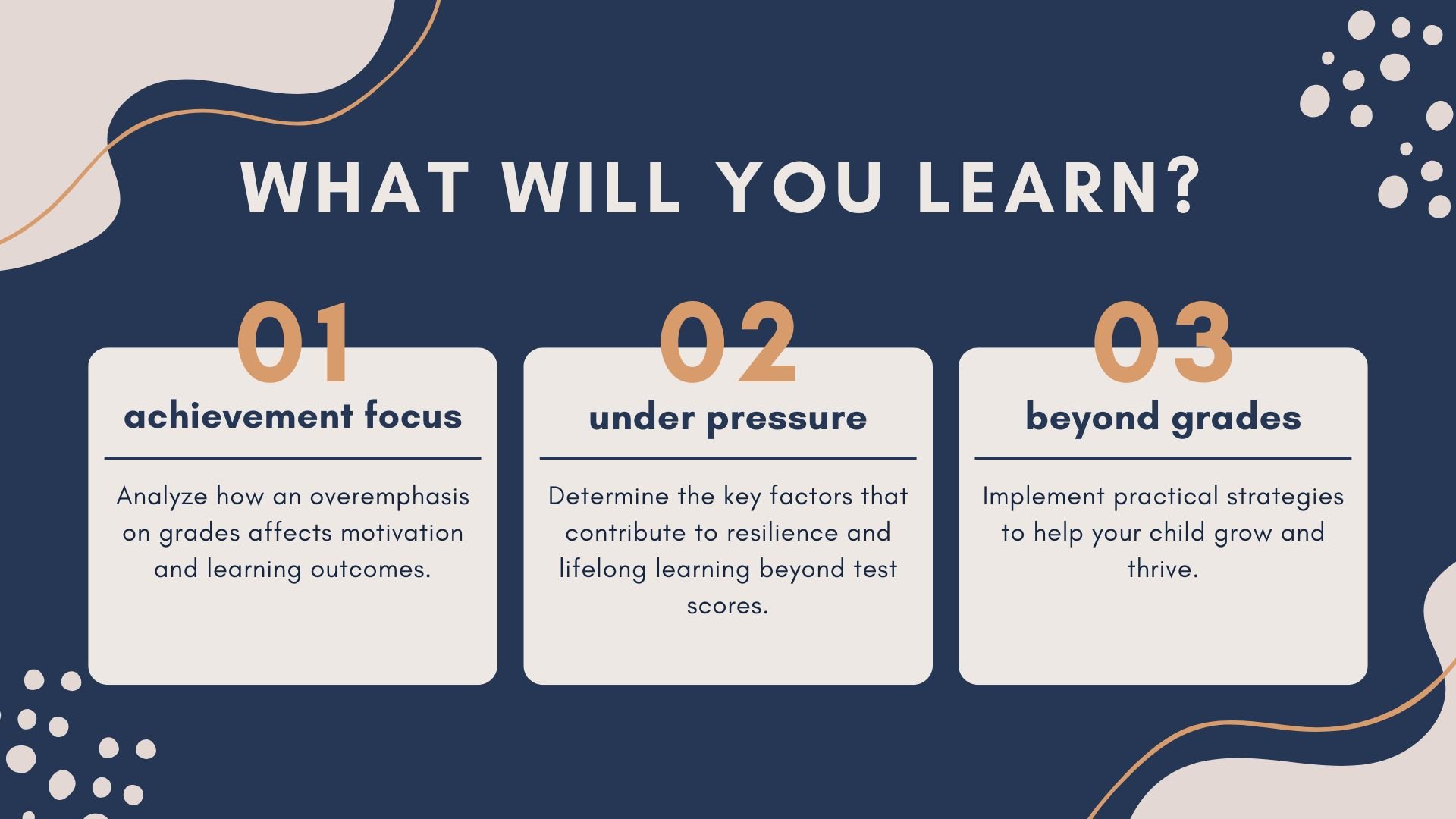Beyond Achievement Capstone Project
Helping parents of high-achieving students foster resilience and motivation through a research-backed eLearning module.
Beyond Achievement is a scenario-based eLearning module created as the culminating project for my Master’s in Educational Technology and Instructional Design. Grounded in research and shaped by a comprehensive literature review, the module was developed to support parents of high-achieving children in fostering resilience, intrinsic motivation, and a growth mindset—rather than emphasizing academic performance alone.
This capstone project followed a Design-Based Research (DBR) methodology and was informed by current studies on motivation, parental influence, and achievement culture. Using Rise 360, I created a flexible, mobile-friendly learning experience that includes realistic parenting scenarios, embedded reflections, and actionable strategies. The result is a research-backed, learner-centered module that equips parents to shift their focus from outcomes to the long-term emotional and academic growth of their children.
Problem
High-achieving students often perform well on assessments, but beneath the surface, many struggle with perfectionism, performance anxiety, and a fear of failure. In high-pressure communities, parents—often unintentionally—reinforce these patterns by focusing heavily on academic outcomes. While these parents are deeply invested in their children’s success, they often lack tools to support their child’s resilience, intrinsic motivation, and long-term well-being.
Research shows that when praise and expectations are tied solely to performance, children may avoid challenges, develop fixed mindsets, or link their self-worth to achievement (Dweck, 2006; Grolnick & Pomerantz, 2009). There was a clear instructional gap: parents needed a more balanced framework and practical strategies to promote healthy motivation.
Solution
This eLearning module was designed to bridge the gap between research and real life. Built in Rise 360, the module offers a scenario-based learning experience that helps parents of high-achieving children shift from performance-driven parenting toward approaches that build grit, curiosity, and a growth mindset.
Through short, interactive lessons, parents are guided to:
Reflect on how they respond to academic challenges at home
Learn the impact of mindset and motivation research
Practice applying new strategies in realistic scenarios
Build a toolkit of phrases and habits that support emotional and academic resilience
The module was designed to be mobile-friendly, approachable, and respectful of busy schedules—while still prompting deep, meaningful shifts in thinking.





Analysis
I began by identifying a recurring instructional challenge: many high-achieving students struggle emotionally, despite strong academic performance. Through interviews, observations, and a review of relevant literature, I found a consistent gap between parental intentions and research-backed strategies that support resilience and motivation. I defined the learner population, instructional goals, and the contextual barriers parents face (e.g., time, pressure, uncertainty).
Design
Using the insights from my literature review, I designed a flexible, scenario-based learning experience tailored to the needs of parents. I used Google Slides to organize branching options, mindset concepts, and learning objectives. I focused on:
Relevant decision-making moments parents face at home
Bite-sized modules with reflection opportunities
A warm, conversational tone to build trust and reduce defensiveness
Implementation
The module was piloted with 18 parents recruited through school networks.
Participants completed the module independently over the course of two weeks. The delivery method was asynchronous, ensuring accessibility for busy families.
Evaluation
Using a mixed-methods approach, I gathered both quantitative and qualitative data:
Pre/post-assessments measured shifts in understanding
Reflections captured mindset change and self-awareness
Open-ended feedback provided insight on usability and emotional impact
Results indicated that the module helped parents reflect more deeply, adopt new language around effort and challenge, and feel more confident in supporting their child's motivation beyond grades.